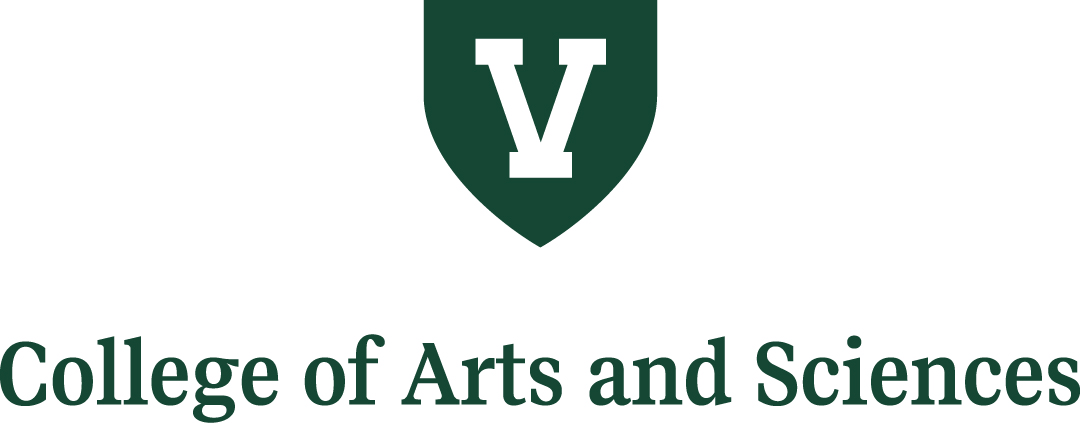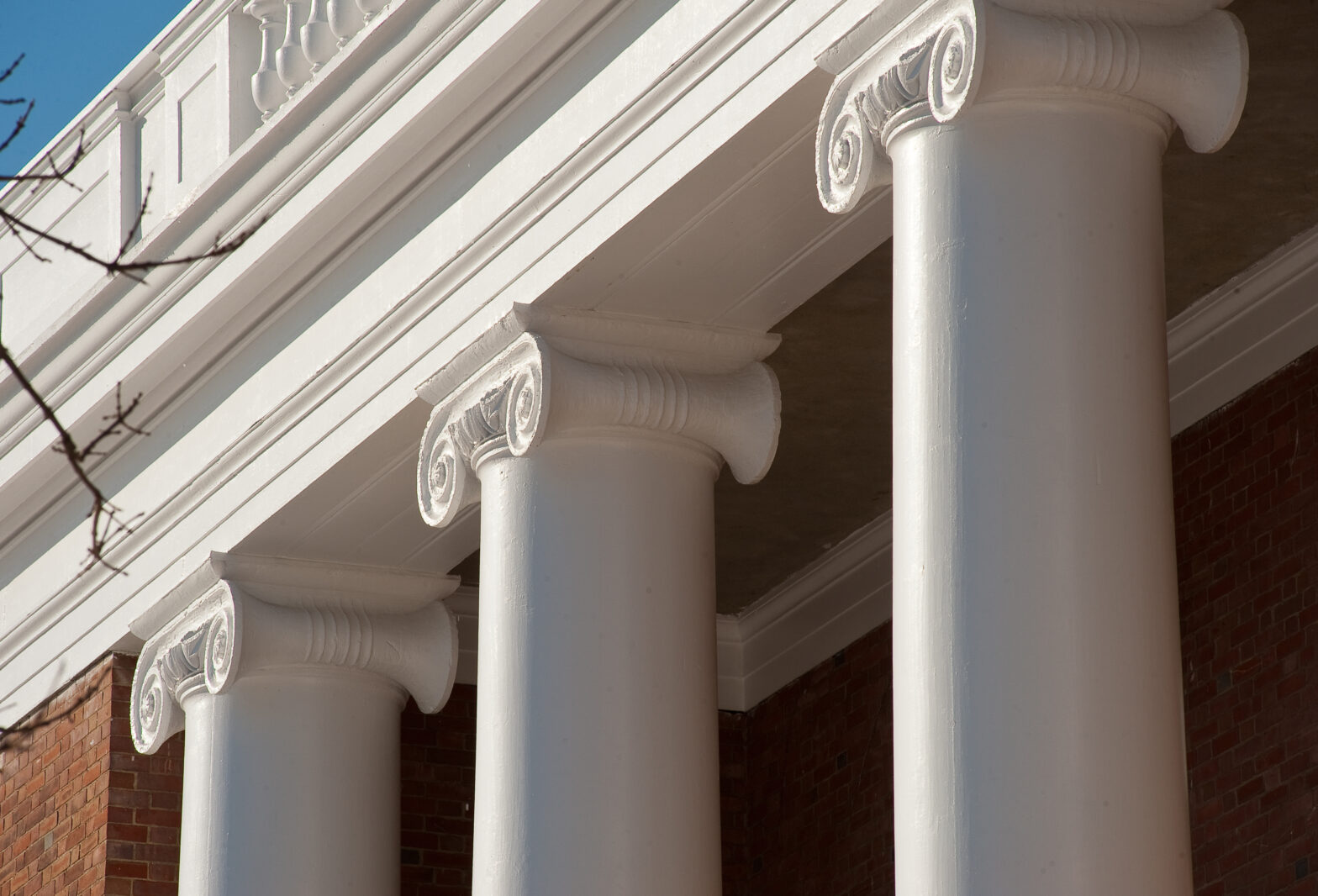We’re here to help.
Helping students pursue internships is getting easier by the day. On this page you will find all the information you need to guide students toward experiential opportunities in their field of interest. As always, reach out to our team at cas.internships@uvm.edu if you need assistance.
This webpage is a digital version of our printed Faculty Advising Guide. If you’d like a printed version, please let us know!

1. Explore the Options
Students should start by looking at the various options for internship format. CAS runs several programs that match students with internships (Communities of Practice, Semester for Impact, and our Boston & DC programs), or are more focused on mini real-world projects (Global Career Accelerator), but many students choose to pursue independent internships in the Burlington community and then enroll in credit. It all depends on the student’s level of experience and area of interest.
UVM Global Career Accelerator
The University of Vermont has partnered with Podium Education to offer a 4-credit, online Global Career Accelerator. In this program students will tackle real-world problems in a global context while learning an in-demand technology skill. Students will work with peers from over 40 countries on both asynchronous and synchronous coursework in one of five tracks: Digital Marketing, Web Development, Data Analytics, Coding for Data, or Career Rotation. This program is ideal for the liberal arts student looking to add marketable skills to their repertoire!
Students will receive 4 elective UVM credits toward their degree for completing this program under course number CAS 1990. The program runs fall, spring and summer. There is an $1,800 Program Fee associated with this program in the fall and spring terms. During the summer term, the $1,800 fee is lifted, but students must pay for 4 credits of summer tuition to participate.
CAS Internship Programs
Ideal for Sophomores + up, these programs are run by CAS and are a great way to get involved in an internship without needing to find one on their own.
Communities of Practice (part-time, alongside other courses)
In the Communities of Practice program, interns work in a cohort model to build their skills while completing work in a professional setting for external organizations. Students are matched with internships after completing a matching quiz and discussion with faculty. Faculty are all industry professionals who currently work in their field of focus.
This program is a great option for students who have never had an internship before, or for those who are looking to enter a new field. Students earn 3 credits under course number CAS 2920. Sophomore standing required except in special circumstances.
Community News Service (part-time, alongside other courses)
The Community News Service (CNS) is a student-powered partnership with local community papers and media outlets. More than a journalism program, CNS allows students of all majors to showcase their work in print while learning best practices surrounding research, fact-checking, community engagement, interviewing, and more.
This program is variable credit (1 credit = 40 hours over the semester) under course number CAS 3922.
Semester for Impact (full-time)
Our partners at the College for Social Innovation are launching a new 15-credit program right here in Burlington! Students will be matched with a full-time (400 hour) internship in the local community related to social change and will take two academic courses alongside a national cohort of change leaders interning in Burlington, Boston, and around New England.
This program awards 15 credits and is ideal for students who want to make their internship the focus of their semester. Learn more on our Semester for Impact webpage.
Vermont Public Partnership (part-time, alongside other courses)
The University of Vermont College of Arts and Sciences has partnered with Vermont Public to create a multi-level engagement program that allows UVM students to work alongside Vermont Public staff while earning academic credit.
There are three courses associated with this partnership to fit students of various levels of experience. Learn more on our Vermont Public Partnership webpage!
Independent Internships
Many students choose to pursue internships independently of our managed programs–either around Burlington or in their hometowns during the summer. UVM also offers on-campus internships in various departments and offices that students can apply for via the Student Employment Office.
Independent internships typically last for a semester (or two) and students work on average 8-10 hours per week. Please see the Application Resources listed below for advice on applying to internships. Once a student lands an internship, they can enroll in credit via UVM (see below Earning Credit section).
Since internships in the Burlington community are competitive, students who have a bit of prior experience (via a previous internship or other experiential learning activity) are more likely to land a position. Many students choose to do an independent internship after completing a Community of Practice internship, Service Learning course, or other mentored program.
Micro-Internships
Perfect for students who have a level of skill that would enable them to work completely independently on a short-term project. Different from a typical internship placement, micro-internships are more like freelancing and allow students to build up their resumes or portfolio. The UVM Micro-Internship Program identifies local startups, small businesses, and nonprofit organizations interested in connecting with UVM students who will contribute to their company’s success.
Micro-internships typically last a few weeks and are all paid. They are generally done not-for-credit. Learn more on the Career Center’s Micro-Internships page.
Semester-Away Programs (Boston, NYC, DC)
These programs allow a student to spend a full semester in another city while completing a full-time internship.
Semester in the City (Boston)
This is a semester-long internship program located in Boston, Massachusetts open to students of all majors. Internships are focused on social change and nonprofits. Runs Fall and Spring semesters.
Students will receive 15 credits toward their degree. 9 of those credits are internship credits, 3 of them are elective academic credits (for the one course student’s take while in Boston) and 3 are elective academic elective credits for guided professional development work. In some cases, with department position, students can count some of the academic credits toward their major.
The Washington Center (Washington, DC)
This is a semester-long internship program located in Washington, D.C. open to students of all majors. Internship opportunities are varied and broad. UVM students have interned in for profits, media organizations, non profits, museums, government, law enforcement, and NGOs. Runs Fall, Spring, and Summer semesters.
Students will receive 15 credits toward their degree (12 for the summer session). 9 of those credits are internship credits, 3 of them are elective academic credits (for the one academic course student’s take while in D.C.) and 3 of them are academic elective credits for guided professional development work. The 3 academic elective credits for the students’ evening courses are able to be counted toward the student’s major with department permission.
Arts in Action (New York City)
The College of Arts & Sciences at UVM is offering a 15-credit, semester-long socially engaged experience in New York City with a focus on community, art and activism. Students will spend a semester interning in New York and gaining firsthand knowledge of the art world and arts in community. This program is for students that are interested in using the visual arts and the city of New York as a lens for exploring and understanding issues of inequality and the struggle for social justice. The program consists of a 3-day-per-week placement, professional development work and an academic course, Art and Activism. Students of all majors are invited to apply. Runs Fall semester starting Fall 2026.
Students will receive 15 credits toward their degree. 9 of those credits are internship credits, 3 of them are academic credits (for the Art and Activism seminar) and 3 of them are academic elective credits for guided professional development work. In some cases, with department position, students can count some of the academic credits toward their major.
2. Application Resources
Students pursuing independent internships can use these resources to apply for and land an internship.
Application Guide
Please direct students to our Internship Search Guide that will walk them through the process of finding an internship external to one of our managed programs.
If students need 1:1 help or need to update their materials (resume, cover letter, etc.) please have them make an appointment with the Career Center or direct them to drop-in hours. Alternately, faculty can submit a referral form for students who many need a bit of extra help.
If a student has no idea what they would like to do, they should look into joining an Interest Group via UVM Connect that will send them opportunities in their interest area and help them explore possible directions to pursue.
Navigating Identity & Anti-Blackness in the Internship Search
The Career Center has put together a helpful guide for students who are experiencing discrimination while looking for internships or jobs and those who may be struggling with impostor syndrome.


3. Earning Credit
Students who have landed an independent internship should follow these guidelines for earning credit.
Elective Credit
For internships external to UVM, or with a UVM entity such as an academic department or administrative office, students should enroll in CAS 2991, CAS’s elective internship course. This option is open to students regardless of whether their internship is related to their major or minor.
Students can enroll for 1 credit for every 40 hours they work at their internship across the semester. Please note that hours can only be counted between the first and last day of the semester in which the student is enrolled. For registration instructions and forms, see our credit information page.
Credit Toward a Major or Minor
If a student’s internship is directly related to the subject matter of their major or minor, they may request internship credit from their department. Some departments run internship courses while others prefer to have students arrange credit with a specific faculty member. Still others may want the student to enroll in credit via CAS and then perform a degree audit exception to count the credit toward the major or minor requirements later. Students should be advised to speak with their department chair for more information.
If you’ve been asked to supervise internship credit for a student, please see our guide to offering internship credit for faculty.
Credit for a Completed Internship
CAS 1990: Professional Contexts
Students who have completed at least 80 hours at an internship and have not received any credit for it may be eligible for CAS 1990: Professional Contexts, a new course focused on helping students reflect meaningfully on the value and integrity of their work outside the classroom and understand and articulate the relationship between tasks during employment or volunteer work and their overall liberal arts education.
This course is offered only during the Fall semester. This course is not an internship course — it is academic credit — and welcomes students who have completed other sorts of pre-professional or volunteer work. More information and pre-req information can be found here. Students must contact Sophia Trigg (strigg@uvm.edu) for enrollment permission and override.
Credit toward the major:
Departments may, at their discretion, craft an independent study that uses a finished internship as a launching point for further study. It is important to ensure that the student understands that their transcript will not list an internship course (something many students feel is important), and that their independent study will need to follow all College and Department guidelines for this type of credit.
4. Summer Internship Funding
The College of Arts & Sciences offers summer funding for students doing unpaid or underpaid internships. This money can help students spend more time interning by reducing the necessity of a part-time job. Please see the CAS Summer Internship Scholarship Program webpage for more information.
Students can reach out to the CAS Internship Team for more information.


5. Setting Students up for Success
Once students have landed an internship or joined a program, consider sharing our intern resources with them. On this page you’ll find pre-internship goal setting tips, during-internship inspiration, and post-internship advice.
If a student runs into a major issue, safety concern, or negative / unprofessional situation during their internship, CAS Internship Program Director Sophia Trigg is available to help them navigate.
For help with credit enrollment, policies, MOUs, or for general help, please direct students to cas.internships@uvm.edu so our team can help them.
Additional Resources
International Student Information
Students on F-1 visas MUST connect with OIE to apply for CPT (Curricular Practical Training) authorization before starting any work or internship experience. The student should also be in touch with their faculty advisor as part of this process.
Promotional Materials
If you’re looking to share information about a particular internship opportunity with your students, please feel free to use these materials:
- Internship information to post on your Blackboard page (Word doc)
- Internship Program Overview (video: 3m 48s)
- Interviews with student interns
Still have questions?
Email cas.discovery@uvm.edu — our team would be happy to assist.

